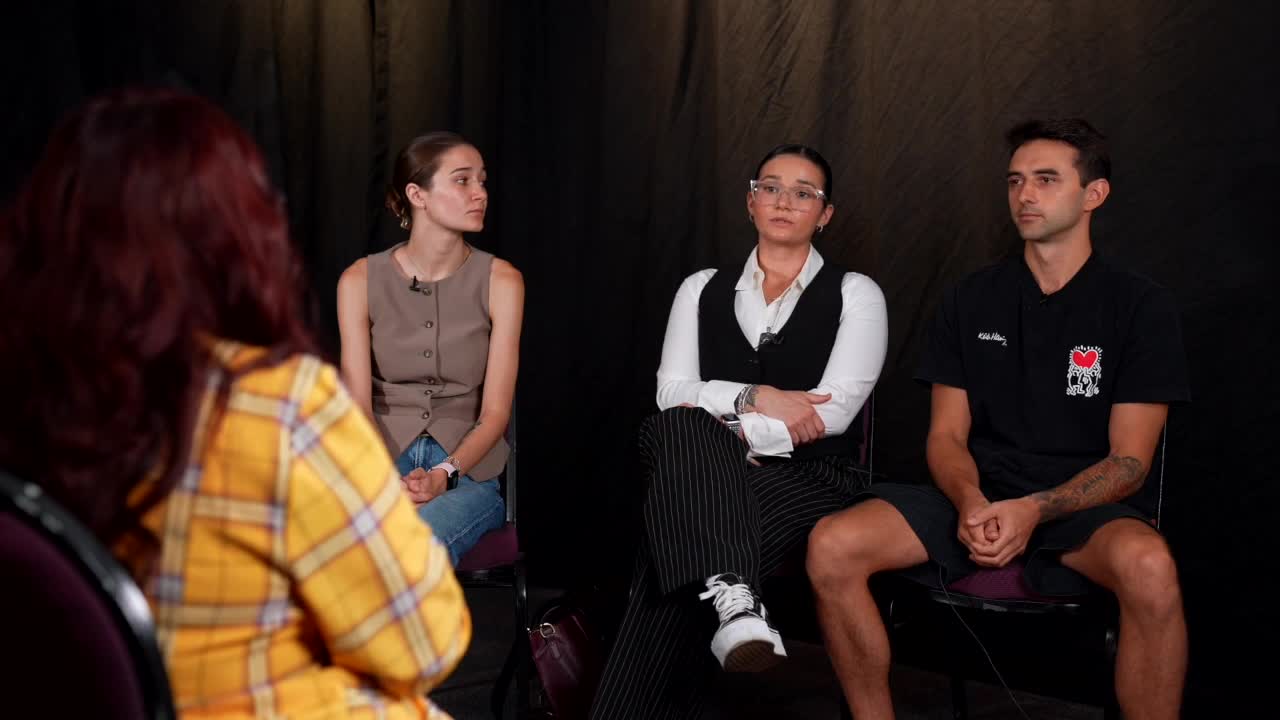PHOENIX — An Arizona court has ordered two children of a state prison inmate erroneously released early to stop their “unauthorized practice of law.”
The State Bar of Arizona sued Haven McQueen and Paris Cramer last week, saying they aren’t authorized to practice law in Arizona or any other jurisdiction, and also asked the court to issue the cease-and-desist order.
McQueen and Paris Cramer are the daughters of David Cramer, an Arizona prison inmate who was released from the Lewis state prison complex on June 2, decades before his sentence was up. State prison officials have said his release was due to fraudulent court papers filed with the department and the courts.
In their request for an order, the State Bar noted how unusual it was to ask for a cease and desist in such a case, saying it didn’t believe it had ever requested one before.
“The State Bar is concerned that members of the public may consult with or hire Black Canyon Enterprises, PLLC to perform legal services or provide legal advice, and that they may suffer immediate and irreparable injury, loss, and damage unless the Respondents are judicially precluded from continuing to engage in the unauthorized practice of law and represent others,” the State Bar wrote.
Judge Adele Ponce granted the request Tuesday, ordering McQueen, Paris Cramer, Cynthia Baker and Black Canyon Enterprises PLLC to “immediately cease and desist engaging in the unauthorized practice of law in Arizona.”
The judge also ordered them to immediately stop using any language “reasonably likely” to lead people to believe they or the company can provide legal services in Arizona.
A hearing in the case is scheduled for later this month.
McQueen did not respond to ABC15's request for comment. Last week, she sat down with ABC15 to talk about her father’s case, insisting the court documents were legitimate.
“They're signed and sealed, not by the judge that's on his case, but they're signed and sealed by the presiding judge of Maricopa County at the time and by the executive clerk,” McQueen said.
But a spokesperson for the court system confirmed to ABC15 that Judge Joseph C. Welty did not sign any of the documents. The paperwork was not issued by the court, which found the documents were “fraudulent, fictitious documents with no basis in law or fact,” said Vincent Funari, public information officer.
Lawsuit describes how documents led to Cramer's release
The State Bar’s lawsuit details McQueen’s involvement in the preparation and filing of the court documents that led to David Cramer’s release. McQueen’s name appears on the paperwork as “attorney-in-fact" and “deputy clerk.”
According to the lawsuit, she was also described on Black Canyon Enterprises’ website as the executive director and “Attorney-at-Law,” who “specializes in sentence reduction, guardianship, and legal filings.”
Paris Cramer was listed as a co-owner and “Attorney-at-Law (Non-Communicative Role).”
The lawsuit also alleges the company’s website, which currently says it’s password-protected, and says David Cramer had been released from the Department of Corrections 25 years early.
According to the lawsuit, the Black Canyon Enterprises' mission listed on its website said the company “was not a law firm,” but was made up of “constitutional advocates working under natural law.”
“While traditional attorneys are restricted to state-defined procedures and codes, our process reclaims individual sovereignty through common law, constitutional statutes, and lawful declarations,” the website allegedly stated.
McQueen used similar terminology when describing to ABC15 why her father’s court papers were legal.
“All my dad's paperwork is labeled as common law, Article III court,” she said, adding that her father “has the right to file into his own case whatever he wants, because that's our constitutional rights.”
McQueen and her father – who called his daughter during the interview – repeatedly referred to an “Article III court.” It’s language commonly used by followers of the sovereign citizen movement, which rejects the legitimacy of the court system.
There is no separate “common law” court.
Department of Corrections makes changes
David Cramer was taken back into custody outside McQueen’s home on August 20, a little more than 11 weeks after he was released.
The Department of Corrections told ABC15 in a statement that it has made some changes to prevent similar incidents.
“In the immediate term, the Department has enhanced its review and verification processes in areas relevant to this matter,” ADCRR said in a statement.“In addition, the Department is maintaining close communication with our partners in the Judicial Branch and other Criminal Justice entities, including the Attorney General’s Office.”
The department said it could not comment further because of the ongoing investigation.
The judge in the State Bar’s lawsuit has set a hearing for Sept. 30.
The State Bar is asking that McQueen, Paris Cramer, Baker and Black Canyon Enterprises be permanently barred from the unauthorized practice of law in Arizona, pay a civil penalty of $2,000 each, and pay for the State Bar’s legal expenses.
The suit also asks that they return documents, files, and fees paid to any existing customers and immediately notify them of any sanctions.






